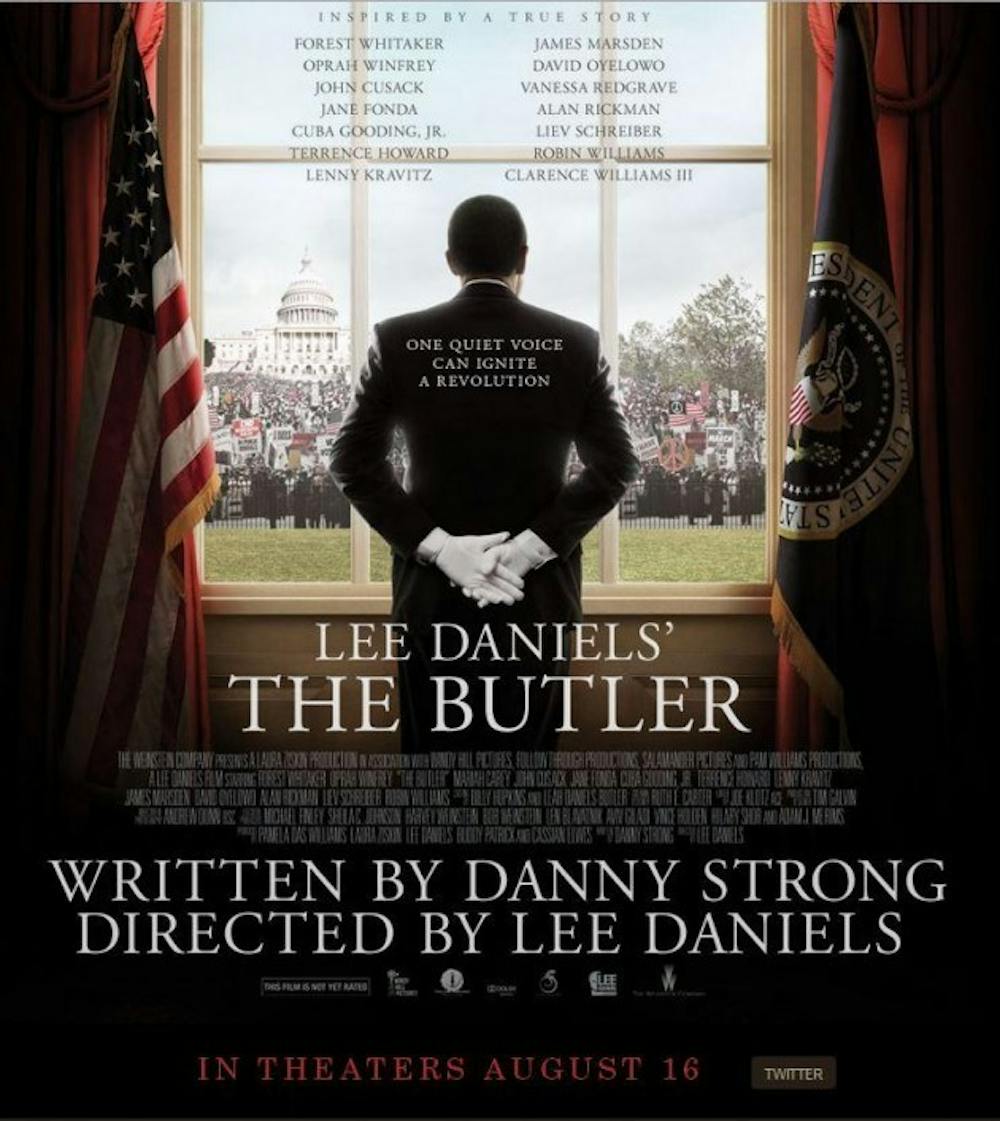Film: The Butler
Release Date: Aug. 16
Studio: The Weinstein Company
Grade: B
Long since the beginning of the 20th century, when Georges M?(c)li??s made Jeanne d'Arc and C.B. DeMille made Joan the Woman, the biopic has established itself as a reliable cinematic genre audiences can expect to be produced continuously.
In understanding film as an extension of literature (among the other art forms), the early masters believed Samuel Johnson's famous observation that "any life well told is worth reading about" could be applied to an evolving medium. As the act of viewing a film consists of reading a visual language, movies further demonstrate the aesthetic axiom that narration that "shows" is more affecting than narration that "tells."
Lee Daniels' new film, The Butler, rests at the intersection of biopic and historical fiction. Inspired by the real life of Eugene Allen, the film narrates the story of Cecil Gaines (Forest Whitaker, The Last King of Scotland), an African-American man born on a cotton farm in the South during the 1920s who eventually becomes a White House butler in a tenure lasting long enough to serve eight presidents - from Eisenhower to Reagan.
Through documenting Gaines' personal journey as he serves coffee and scones to president after president, the film shows us the development of the Civil Rights Movement.
Running parallel to the governing complications each president faces at work are the tempestuous domestic problems Gaines has at home. His wife, Gloria (Oprah Winfrey, Beloved), is an alcoholic with a predilection for house parties; his son, Louis (David Oyelowo, Jack Reacher), is a militant activist insistent on using whatever means necessary to advance the cause of equality.
Gaines is a reserved man who embodies the conviction that self-restraint is a virtue. He becomes deeply opposed to Louis participating in efforts to promote civil rights. As Louis goes off to Tennessee to attend Fisk University against the wishes of his father, who thinks the South is too volatile an environment, he joins the undertaking to desegregate public places and becomes a freedom rider.
This is just the beginning of a career, which includes joining the Black Panther Party and becoming a member of Congress, in the public arena for Louis. But as he gets more entwined in political activism, his father grows more distant from him. Just as Louis seems to be at every crucial moment of the Civil Rights Movement, his father witnesses each president contemplating what actions to take for the corresponding crisis.
Cross cutting between the two men illustrates a relationship between policy and people - how legislation directly affects human life.
Written by Danny Strong (Gamechange), the script is multi-layered, and, on occasion, exhausts itself with oversentimentality. It is so rigorously structured that it, at times, feels contrived; but it also has a sincerity that provides considerable depth of feeling. The film's plot is based on an article in The Washington Post by Wil Haygood. Daniels and Strong make the movie into a decadent period piece with excessive theatricality, though it benefits from a lucid tenderness and strong sense of direction.
In the opening scene, Cecil, as a young boy, witnesses his mother being raped by their white master in front of his father's eyes. When his father speaks just one word to the man after the act is committed, indicating only a gesture of confrontation, he is shot in the head and killed instantly. It is one of the most forceful beginnings to come out of any recent film.
Daniels begins the film here both deliberately and decidedly - it is a moment in time to weigh both a man's and a nation's progress; his personal narrative becomes a metaphor for the country's narrative.
Gaines escapes the plantation shortly after the trauma renders his mother mentally enervated, and he falls under the training of owners of a pastry shop, which he broke into one night out of hunger and desperation. They train him to be a house servant. Gaines genuinely enjoys the job. He is a natural at conveying the demeanor and practicing the etiquette. Being subservient doesn't demoralize him; he finds there is nobility in the work.
The film then jumps to years later, when Gaines is discovered while working at a Washington, D.C., hotel and is hired by the White House. As years pass, the Oval Office has new occupants but the staff remains the same. Most of the performances of historical figures are inflated caricatures, though John Cusack (The Frozen Ground) provides a hilarious rendering of Richard Nixon. Cusack's deadpan delivery of Dick's neurotic mannerisms achieves a presence.
Through the passage of time, Cecil comes to recognize his son's courage and the importance of his engagement - the necessity of participatory democracy. Their reconciliation is a merging of assertive activism and reticent calculation - and Daniels wants to suggest that some sort of balance is achieved.
What's surprising about the film is that it doesn't try to resolve all the complexities regarding race in America. Cecil's relationship with Louis may become a bit artificial (it's there for gratification), but it provides a human dimension that reflects opposing ideologies.
The movie moves rhythmically with definitive detail. There is so much displacement throughout Cecil's life - the camera can never stay still; it is never at rest.
He spends his entire adult life working in the White House, and once he leaves, a black president steps in. It is a tribute to those who came before the present climate - a reflection on our progress through looking at the past.
The distributors arranged for the film to come out around the anniversary of the March on Washington. I highly suspect Daniels considered Martin Luther King Jr.'s quote (a favorite of President Obama's): "The arc of the moral universe is long but it bends toward justice," when preparing the film. It is heavy handed in making its point, but genuine in doing so.
Email: arts@ubspectrum.com





